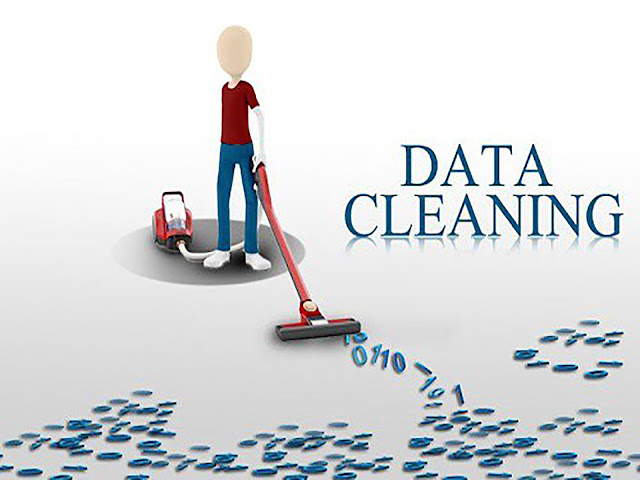Increase efficiency of your ERP system with clean data
Data quality is crucial and valuable asset for any organization. When it comes to data, there are many chances to have garbage stored because of the poor format, spelling, duplicate, unwanted spaces, etc., and data cleaning is one of the important steps to create a good culture and quality decision making.
What is data cleaning?
Data cleaning is the process of improving data quality
within a dataset by modifying or removing corrupted, incorrect, incomplete or
duplicate data.
When combining or uploading bulk data, there are lot of
chances of data duplication. If the data is inaccurate, reports, analysis,
forecasting, etc., are unreliable, even if they look correct.
If you are wondering how to keep your ERP data clean,
then we have got this covered in this blog for you.
How to cleanse your ERP data
Run a check
Data stored in your ERP software is the most valuable asset
of your organization. Without the proper data, all the process and decision
making will be inaccurate causing huge loss.
Set up a sanity checks on a weekly or monthly basis to
identify the typos or any entry errors within the ERP database. Each employee
handling the data-entry can take responsibility to clean the database by checking
the entries made, adding missing information, correcting wrongly entered data.
Eliminate duplicates
Duplicates occurs when same data is entered multiple
times in the system. The project data entered multiple times in accounting,
inventory, project management, asset management, etc., has a high impact in
business process and drop in productivity. There is a chance of ordering the
wrong quantity of product or send an Invoice with incorrect information which leads
to a costly mistake. An even bigger mistake happens when your organization takes
decision to expand with the improper financial data entered in your ERP
software.
The first step to avoid duplicate starts with your data
migration process. All the data need to be refined and updated with accurate
information. Because manually identifying, managing and merging the duplicates
can be painful and time-consuming.
Archive historical data
If you have stored data in your ERP system that are no
longer need to be accessed or modified but you may need for reference in the
future, then it’s time to archive those inactive data. Archiving the data has
many benefits which includes
- Prevent data loss
- Optimize space and reduce cost
- Improves performance and file restoration
- Better data security and compliance
Get help from ERP vendor
Outsourcing your ERP data cleaning to your ERP vendor is
the best way to eliminate unwanted or historical data. Here’s how it will
benefit your company:
- Save your time
- Experienced professional to deliver high quality data
How do I keep my data clean in ERP?
Many would agree that an ERP system is useful based on
the quality of data stored within it. Unfortunately, most of the companies doesn’t
have clean data and lacks staff to manually check the quality of the data
entered in the entire database. Even, if we have staff to allocate, it would be
a waste of time restructuring, correcting or modifying the data each time. So here
is the list to keep your data clean and organized
Create standard data entry practice
Once you have all your data cleaned, then you need to
implement a standard procedure to enter the data in each ERP module and define
your own rules in the system to fill up all the mandatory data then and there.
Create a guideline and make sure all the ERP users follows the same.
Limit the number of employee access
To reduce the number of incorrect data entry, you can restrict
the user privileges and limit the number of employee who can add/edit data in
the ERP system. And make sure they are all trained with the guidelines defined
for entering the data.
Periodic data cleaning
Regular maintenance of your ERP data is needed to keep the database clean. No matter how strictly the guidelines are implemented, there is always a chance for the dirty data to be placed in the system.
How can I know the quality of my data?
The 5
characteristics of a quality data are
- Valid and legitimate
- Accurate and precision
- Comprehensive and complete
- Uniform and relevant
- Reliable and consistent
Understanding the data quality in the ERP database is more important in making efficient and effective business decision in an organization. With the right data stored in the system can create greater impact in the business growth.
The
Horizon EBS can help you have optimized data stored with immediate alert on
entering redundant data, and the highly skillful professionals can help you
move your master data from your older version to the latest version smoothly
without any hiccups. To migrate your ERP to Horizon or upgrade to our latest
version, you can reach us at sales@fit.ae or call us at
+971 4 353 3727.




Comments
Post a Comment